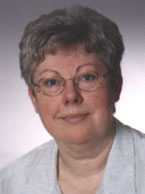Invited lectures

|
Competence Modelling and Measurement in Computer Science EducationJohannes Magenheim, Univ. of Paderborn, Germany Sigrid Schubert, Univ. of Siegen, Germany Abstract: As a result of the Bologna reform of educational systems in Europe the outcome orientation of learning processes, competence-oriented descriptions of the curricula and competence-oriented assessment procedures became standard also in Computer Science Education (CSE). The following keynote addresses important issues of shaping a CSE competence model especially in the area of object-oriented informatics system modeling and system comprehension. Objectives and research methodology of the MoKoM-project are explained. Firstly, the CSE competence model was derived based on theoretical concepts and then secondly the model was empirically examined and refined using expert interviews. Furthermore, the paper depicts the development and examination of a competence measurement instrument which was derived from the competence model. Therefore, the instrument was applied to a large sample of students at the gymnasium´s upper class level. Subsequently, efforts to develop a competence level model based on the retrieved empirical results and on expert ratings are presented. Finally, further demands on research on competence modelling will be outlined. Further information: here Johannes Magenheim is a professor for "Didactics of Informatics" at the department of computer science at the University of Paderborn (since 1998). His primary areas of research and teaching are Didactics of Informatics, E-Learning and Computer Supported Co-operative Learning. He is member of the steering committee of the Working Group "E-learning" of the German Society for Informatics (GI), German National Representative in the International Federation for Information Processing (IFIP) Technical Committee 3 "Education" and member of the IFIP Working Groups 3.1 "Informatics and digital technologies in School Education?" and 3.3 "Research on Education Applications of Information Technologies". Since 1979 Sigrid Schubert has taught informatics in secondary, vocational and higher education. She has been professor of "Didactics of Informatics and E-Learning" (Universities Siegen and Dortmund, Germany) since 1998. Her research interests are Informatics Teacher Education and E-Learning. She is Fellow of the German Society for Informatics (GI), member of the Technical Committee 3 "Education" of the International Federation for Information Processing (IFIP) and chair of the IFIP Working Group 3.1 "Informatics and digital technologies in School Education". |










